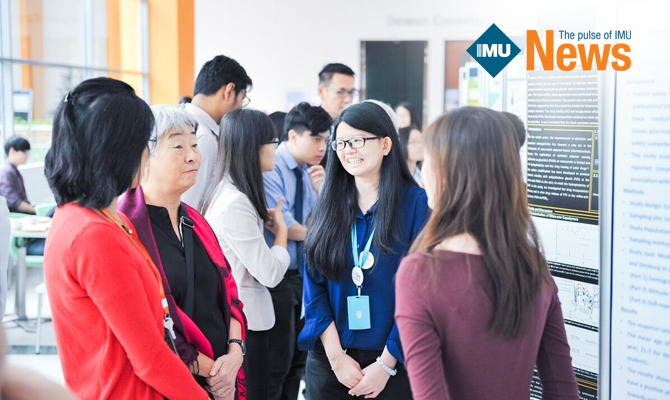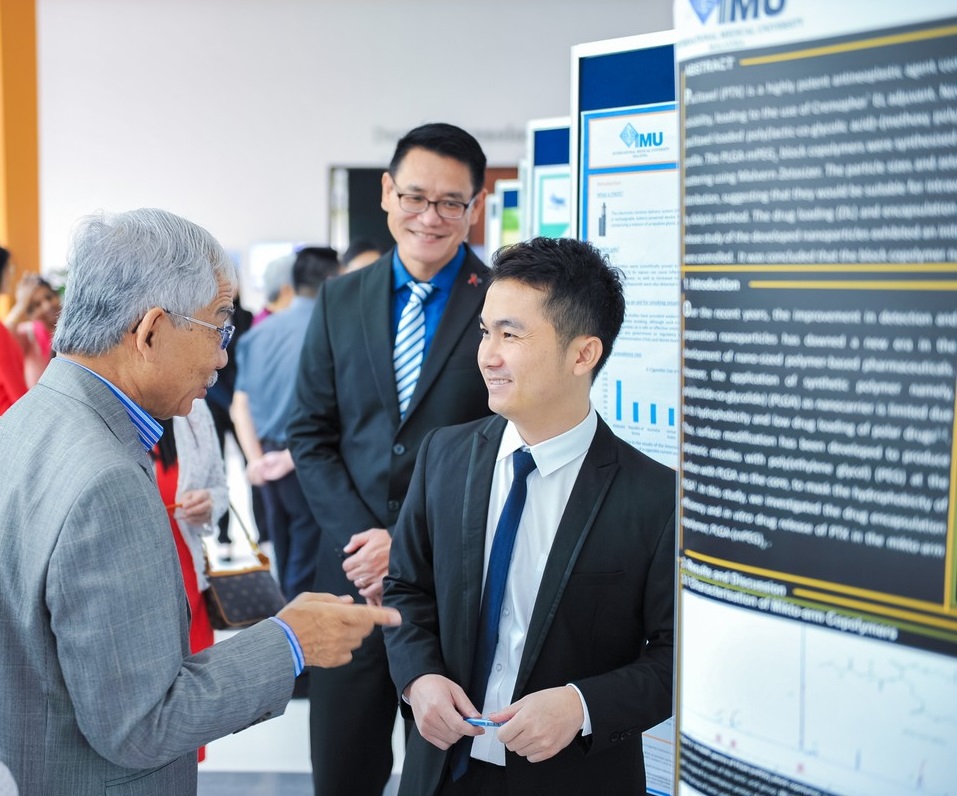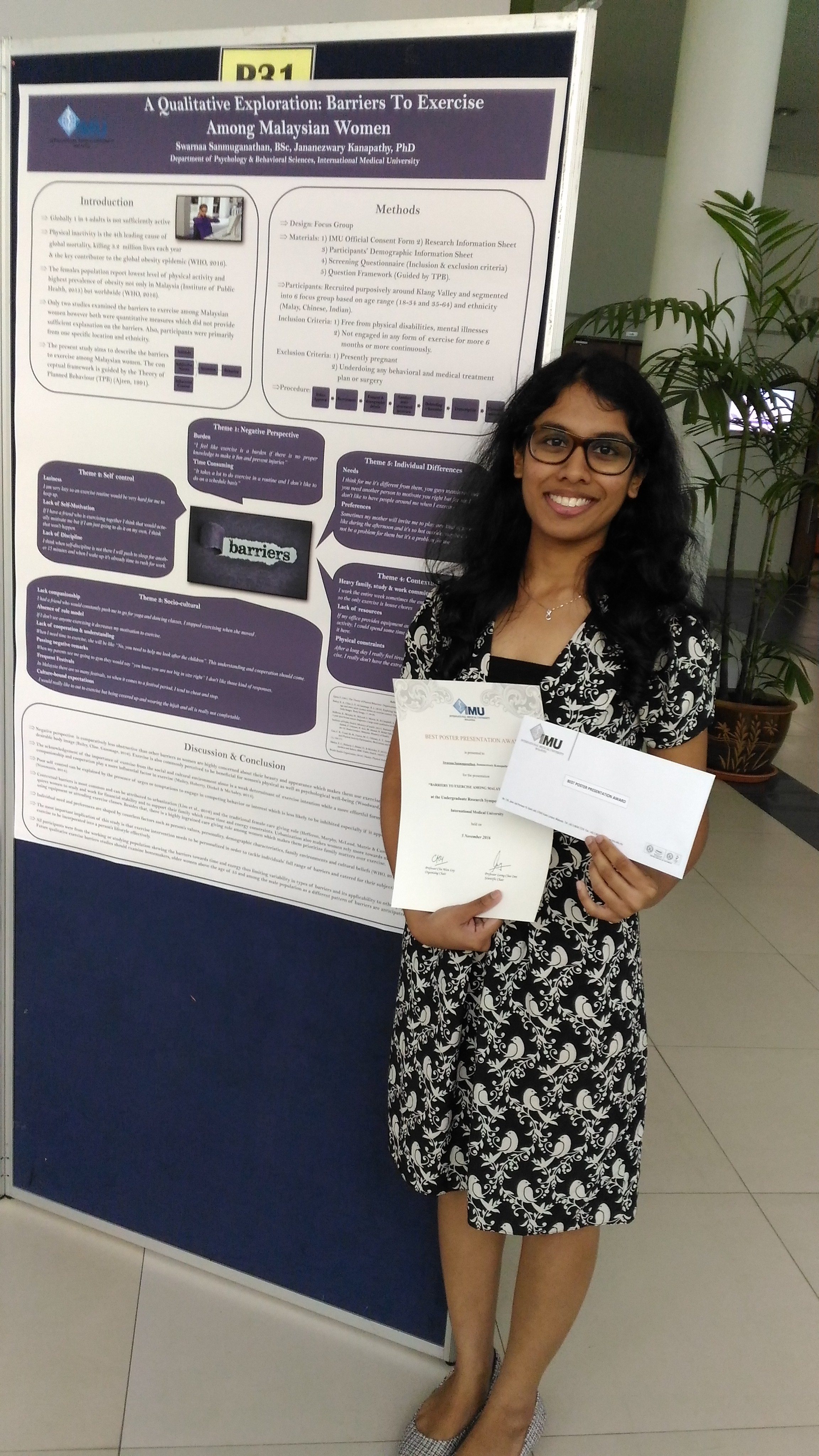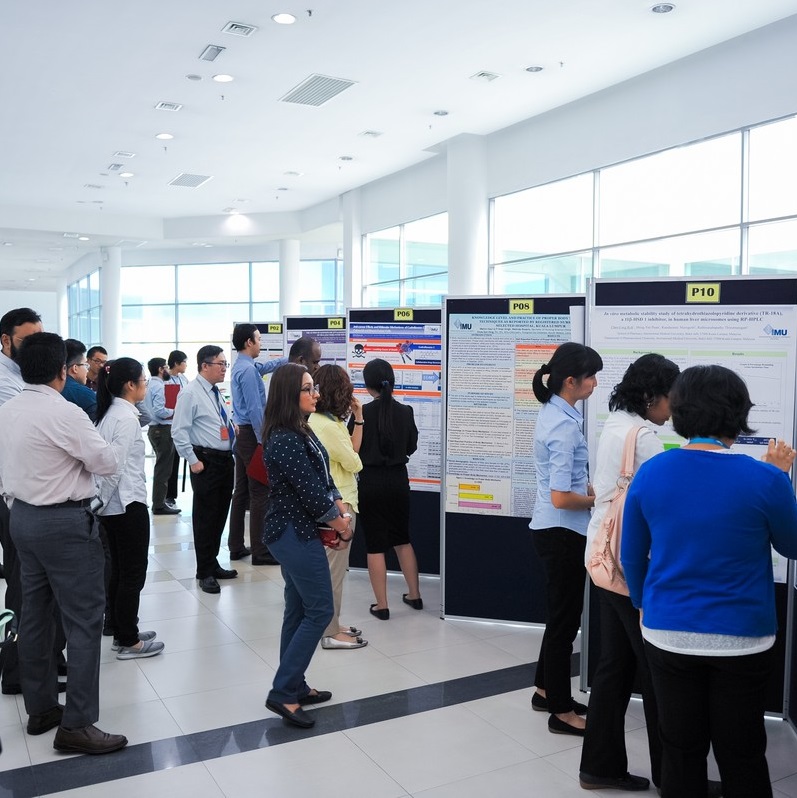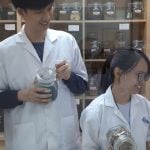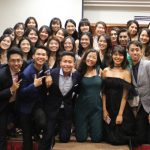Research is considered as an important pillar of a university. Involvement in research has become an increasingly important component of the undergraduate curricula. Research experience allows undergraduate students to better understand published works, learn to balance collaborative and individual work, determine an area of interest, and jump start their careers as researchers. Through exposure to research as undergraduates, many students discover their passion for research and continue on to graduate studies and faculty positions. The International Medical University (IMU) has integrated research into the curriculum and all the undergraduate students have to undergo a research module which requires each of them to conduct a short final year research project.
The Undergraduate Research Symposium (URS) organised by the Institute for Research, Development and Innovation (IRDI) was held on 5 November 2016 at IMU’s Bukit Jalil campus. In line with IMU’s educational mission, the symposium aimed to foster a ‘culture of discovery’ and its commitment to innovative research and scholarship with global impact. The symposium also aimed to bring together IMU undergraduate students from all academic disciplines to share their research findings. The symposium has provided a great opportunity for interdisciplinary discourse allowing students to learn from each other about a broad range of exciting research topics. The sessions of this symposium were organised according to the four main thrust areas of IRDI, namely Cancer and Stem Cell Research, Bioactive Molecules and Drug Delivery, Environmental and Population Health, and Health Profession Education Research. Students from various programmes ranging from MBBS, Bachelor of Medical Sciences, Bachelor of Pharmacy, Bachelor of Dietetics with Nutrition, Bachelor of Nursing to Bachelor of Psychology presented their research findings at this symposium. The presentations covered a wide range of interesting topics. For instance, there were papers on the identification and development of new compounds as potential new drugs. In relation to environmental pollution, there was a paper reporting on the toxicity of different copper compounds in algae. Other topics highlighted in this symposium included personalised medicine, postgraduate nursing education, social media in education, nutrition in patients with diabetes and cardiovascular disease, and intervention strategies for obesity.
There were a total of 16 oral presentations and 30 poster presentations in this symposium. Besides that, 102 participants including IMU staff and students attended the symposium. A prize of RM1000 each was awarded to the Best Oral Presentation and Best Poster Presentation.
| Best Oral Presentation |
Tan Wee Kiat, student from the Bachelor of Pharmacy (Hons) programme, won the Best Oral Presentation Award with his presentation titled Identification of Liver-X-Receptor (LXR) Agonists by High-Throughput Screening. Liver X receptors (LXRs) are important regulators for cholesterol. LXR has emerged as promising drug targets (target on which the drugs act on) and has thus become potential treatments for patients with high cholesterol. Tan Wee Kiat, under the supervision of Dr Mai Chun Wai, Dr Felicia Chung, and Prof Leong Chee-Onn, has identified 5 compounds with such potential.
| Best Poster Presentation |
Swarnaa Sanmuganathan from the Bachelor of Science (Hons) Psychology programme won the Best Poster Presentation Award based on her project titled Barriers to Exercise among Malaysian Women under the supervision of Dr Jananezwary Kanapathy. Adopting a qualitative approach, her project aimed to describe the barriers to exercise among Malaysian women. Swarnaa identified five main themes of barriers to exercise among Malaysian women which were negative perspective, self-control, sociocultural, contextual, and individual differences.
This symposium was a success as it has provided a platform for the students to disseminate and exchange research findings and hence learn about the broad range of research opportunities available in IMU. While classroom learning is an important aspect of the undergraduate education, engaging in research helps the undergraduates to gain a deeper understanding of the scientific process as they develop their research questions and test their hypotheses.




